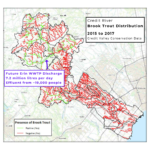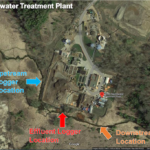THERMAL IMPACT OF ACTON WWTP ON BLACK CREEK
The Acton WWTP discharges effluent into Black Creek. Black Creek is a coldwater creek in Southern Ontario that support trout species and has similarities to West Credit River.
Temperature data collected by the Coalition in the Summer of 2021 show that the Acton WWTP makes Black Creek warmer in the summer and that the effluent remains warm into the fall. There is a concern that warm effluent temperatures in the fall could impact Brook Trout spawning.
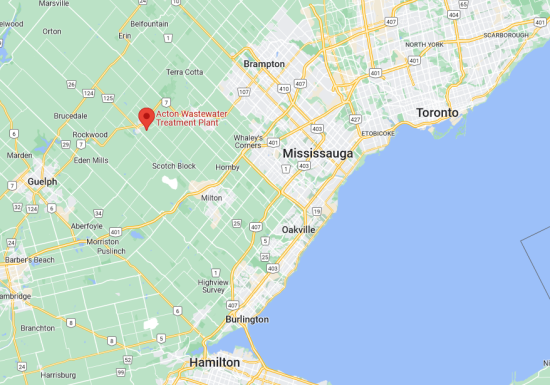
Location of the Acton Wastewater Treatment Plant in the Greater Toronto Area
In the summer of 2021 temperature loggers were installed in the effluent of the Acton WWTP and in Black Creek Upstream and Downstream of the Acton WWTP.
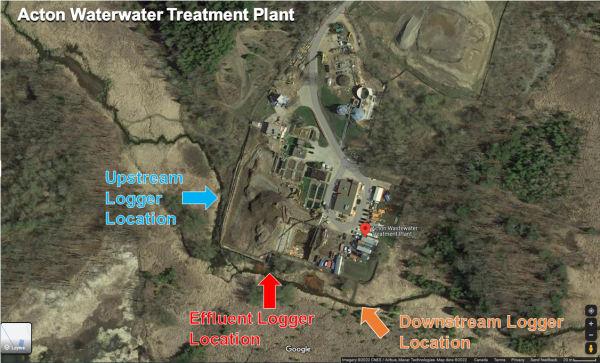
Location of the Upstream, Effluent and Downstream temperature loggers relative to the Acton Wastewater Treatment Plant
The loggers show that the Acton WWTP increased the temperature of Black Creek in the summer months and into the fall.
In August the effluent from the Acton WWTP increased the temperature of Black Creek downstream of the WWTP by 0.5 to 1 °C. This increased the number of days with an average river temperature above 19°C, making Black Creek downstream of the Acton WWTP less suitable for trout species like Brook Trout.
High effluent temperatures from the Acton WWTP persisted into September when temperatures downstream of the WWTP were 1.5 to 2 °C warmer than those upstream.
The impact of the Acton WWTP on Black Creek may be a good predictor of how the the Erin WWTP will impact the West Credit River. Of particular concern is the trend that effluent temperatures remain warm into the fall. If high effluent temperatures persist through September they could impact Brook Trout spawning in October and November.
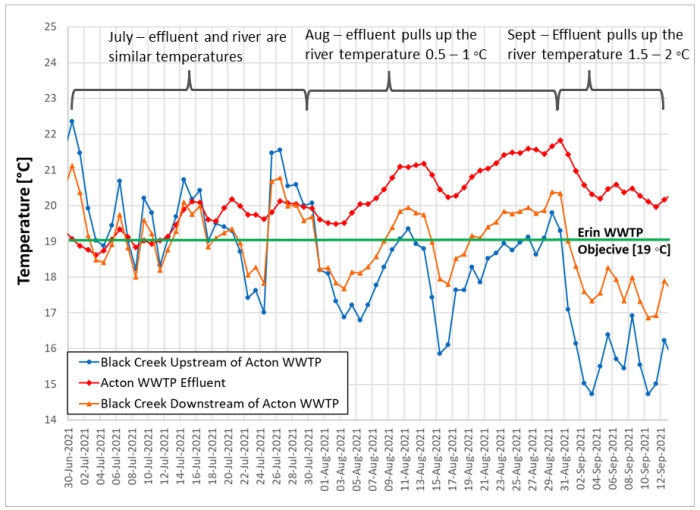
Daily Average Temperatures of the Acton WWTP Effluent and Black Creek Upstream and Downstream of the Acton WWTP in the Summer of 2021.
The Acton WWTP has a clear thermal impact on Black Creek. This level of thermal impact would not be permitted in British Columbia or these states: Idaho, Nevada, Colarado, Oregon, mentioned in our blog post Why Can’t Specific Temperature Be used in Ontario.
